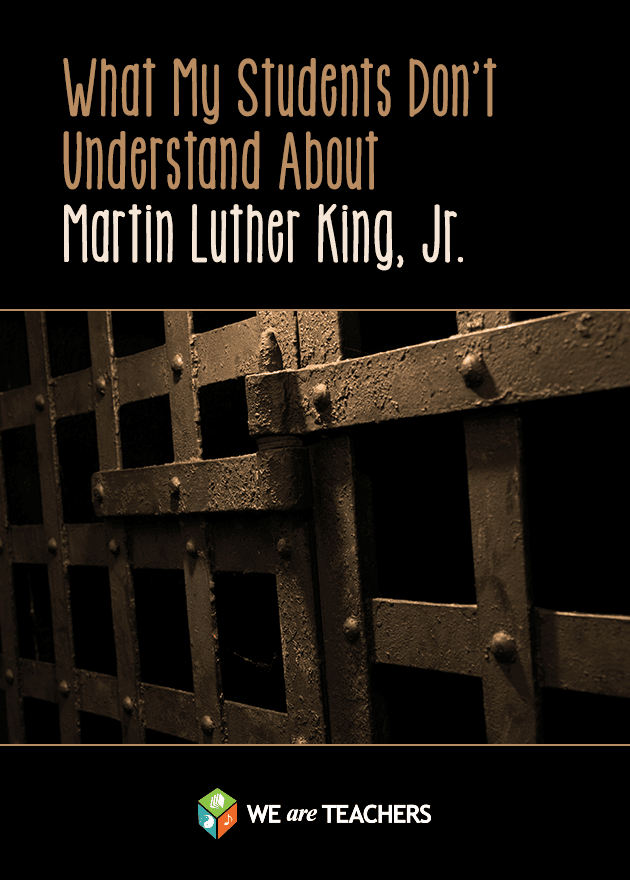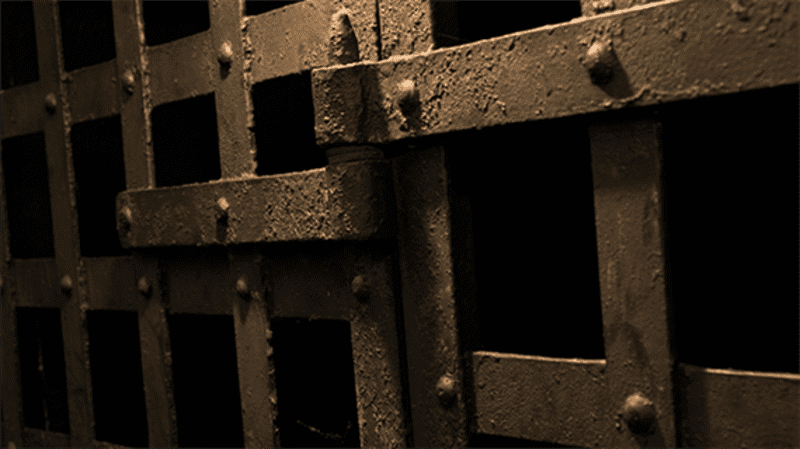“Anybody got a friend who’s been to jail?” About half my students raise their hands. “How do your parents feel about that friend?” Knowing chuckles around the room. A few kids tell stories about how their friends were wrongly arrested, or about how their parents stepped up to provide support despite their hesitations. Most, though, admit that their jailbird friend is emphatically not their parents’ favorite.
“How about you? Imagine that you’re a parent. Your teenager wants to hang out with somebody who’s been arrested 30 times, who’s served jail time, who’s being monitored by the FBI. How would you feel about it?” Here, the agreement is pretty universal. A few kids say it would depend on why the person was arrested; most agree that they wouldn’t want their own teenagers hanging out with someone likely to draw police activity. These are all minority kids, after all; they have their reasons for being wary.
“So what you’re telling me, then, is that if you were a parent in the 1960s, you’d never have let your kid march with Dr. King?” As you might expect, there’s a sudden reversal at that point. Of course they’d march with Dr. King, or let their kids do so. He was right. He was a hero. They want to be on the right side of history.
What I want my kids to understand is that, for most people in the culture of power in the 1960s, he wasn’t. A lot of nice, reasonable people made arguments against integration that, at the time, seemed quite nice and reasonable, too. A lot of nice, reasonable people said things like, “I’m not racist, but …” They claimed Dr. King was moving too fast, demanding too much too quickly. And many, many people agreed with them.
It’s unsettling to remember that a substantial number of people are firmly convinced that Martin Luther King Jr. was president at some point. He’s so ingrained in our minds as The Good Guy, we imagine it must have been obvious to everyone 50 years ago. We forget that, if the civil rights movement had failed, he’d be remembered by society as a lawbreaker, not a liberator. It’s hard for seventh graders to imagine the words they hear on the news—thug, rioter, criminal—being thrown at the leader of the civil rights movement. But it’s important to me that they get the message.
The fact is, risking your life is something we can all imagine. Everybody has something or someone they’re willing to die for. About a third of my kids are aspiring to military careers, so that concept isn’t foreign to them. But Dr. King did more than risk his life. He risked his reputation and his legacy. He turned his back on society’s approval, knowing he’d be judged and hated and mocked. He was willing to make himself the scapegoat and the butt of the joke, and that’s a much harder sacrifice to undertake.
Look, in some ways I do not want my kids to lead the next civil rights movement. I love them, and I’m selfish. I want them to be safe and happy, and leading a revolution isn’t likely to encourage either of those. But these are serious times that call for serious people. I want my students—and my own son—to truly understand what it means to have the courage of their convictions; to be able to accurately weigh the risks of their words and actions, and to speak truth to power in spite of them.
We view Dr. King’s era from the lens of history now. We know which side was right, and we know the victories that were won—and which battles we are still fighting. Schools were desegregated, yet somehow I’ve taught only three white children in the past eight years, and 53 percent of black students attend schools that are less than 10 percent white. The civil rights movement ensured that African Americans could no longer be killed with impunity, and yet I have to talk to my kids every year about how to interact safely with the police. We no longer have laws prohibiting people of color from voting, but one in every 13 African Americans is currently disenfranchised.
It’s a daunting concept. Right now, my kids are 13 years old. If they try to practice some civil disobedience, they’re more likely to stage a protest over the school dress code than systemic racism. And it makes me nervous every time I point out that often in history, heroes are the ones who didn’t follow the rules. If they use my class to inspire a cafeteria sit-in to protest the quality of school corn dogs, we’re going to have a really unpleasant faculty meeting the following Monday. But we have to give them that message.
They have to know that staying out of trouble and doing what they’re told isn’t always the right thing to do. They have to know that the fight for civil rights is one we’ve all inherited, and that, as people of color, they were born on the front lines. I would take that battle away from them if I could. But all I can do is try to prepare them, and I do that by pointing out the footsteps they can choose to follow.

